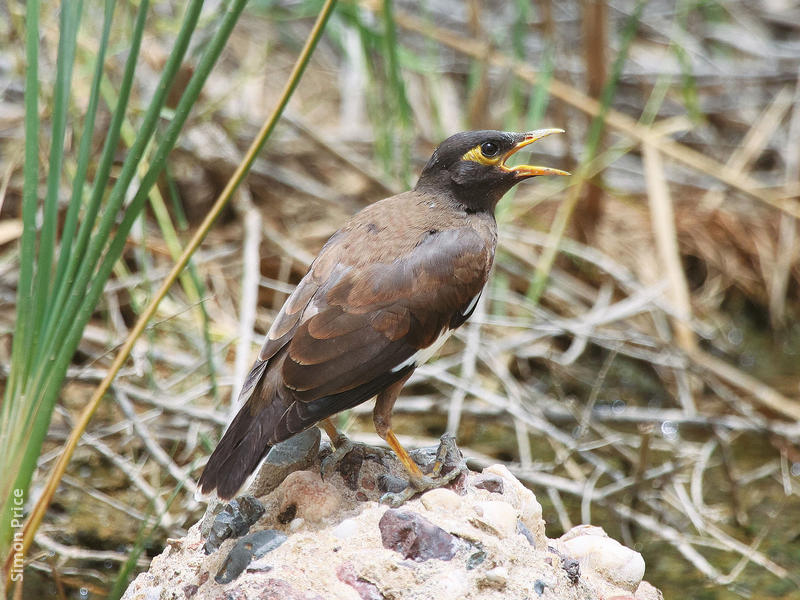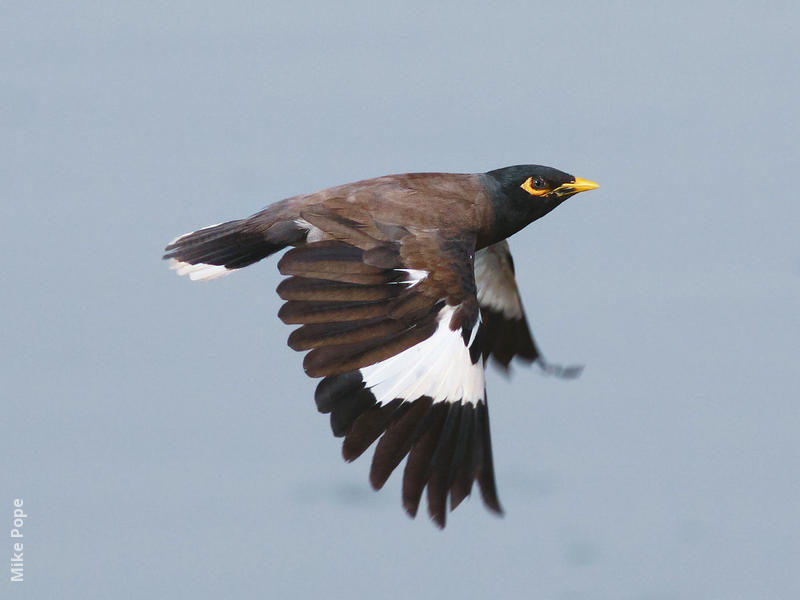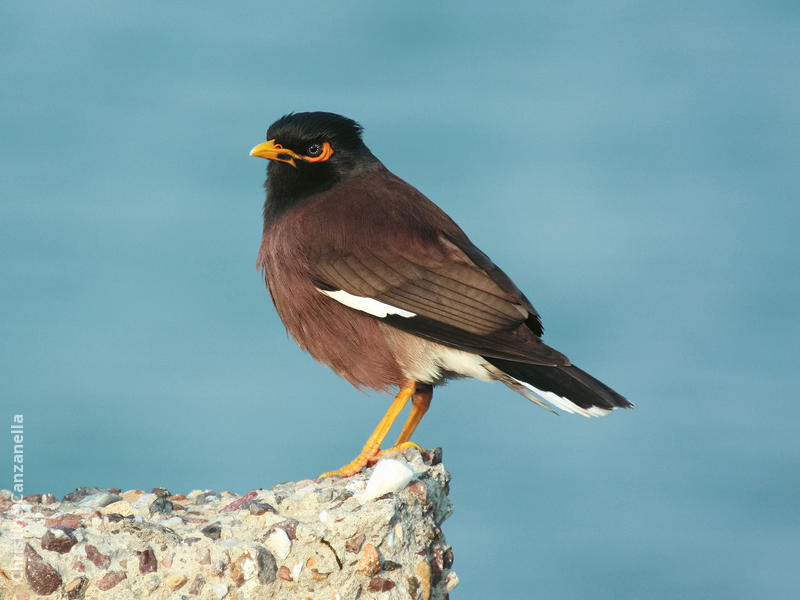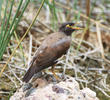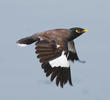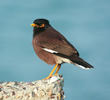- ‹ previous
- 314 of 415
- next ›
Recordings
Similar species
Information
Very common resident; breeds in Kuwait. A non-indigenous species established since the late 1970’s in Kuwait. Birds may have originated as cage bird escapees or transported via shipping to this country. Today it is a common city bird, often seen in fairly large flocks.
Where in Kuwait
It is a bold and aggressive bird that has a close association with human habitation and is found wherever man is within its range. It is a versatile, sociable and supreme opportunist, this omnivorous species consumes a wide variety of food types
In the world
It has an extremely large range and a population that is suspected to be increasing as ongoing habitat degradation is creating new areas of suitable habitat. It is native to much of Central, South and Southeast Asia, ranging from Afghanistan, Turkmenistan and Kazakhstan eastwards through India, Bangladesh and Sri Lanka to China and Indochina. It has been deliberately introduced to control pest insects in a large number of countries, including Australia, New Zealand, South Africa and the United Arab Emirates, although it has actually caused substantial damage to commercial crop plantations and is now itself regarded as a pest species. It is one of the world's most invasive species and one of only three birds in the top 100 species that pose an impact to biodiversity, agriculture and human interests. It is a hollow-nesting species and its aggressiveness has enabled this species to displace many breeding pairs of native hollow-nesters, thereby reducing their reproductive success.
Local threats
No known major threats to this hugely abundant and widespread species


